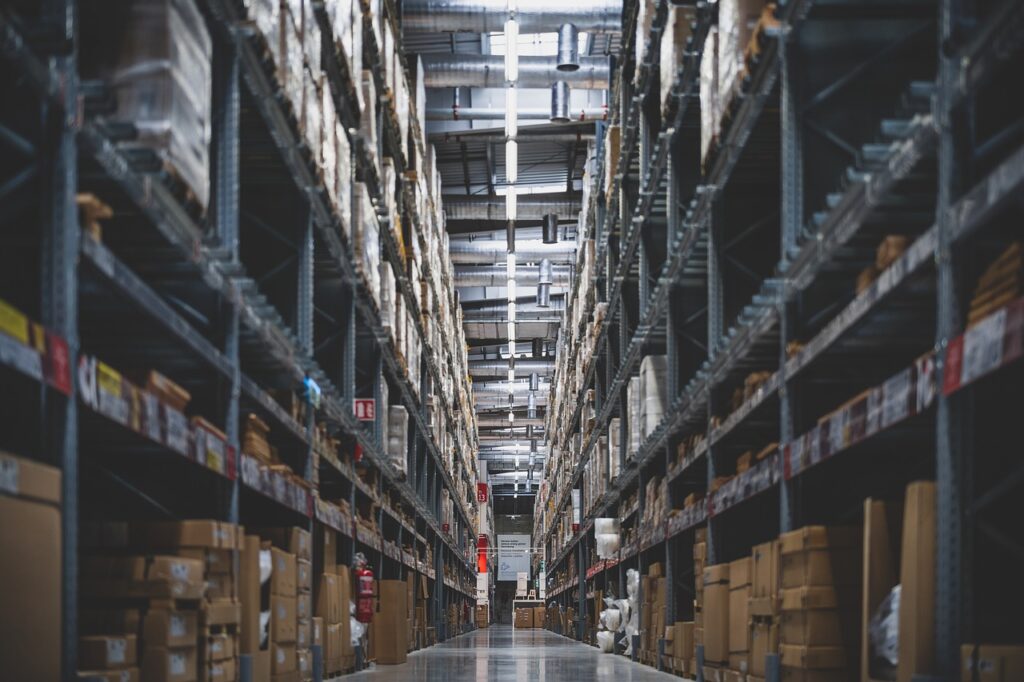Miten tavarat pysyvät liikenteessä? Miten kaupan hyllyillä on aina tuotteita ja verkosta tilatut paketit saapuvat kotiovelle? Globaali kapitalismi nojaa varastoissa ja kuljetuksissa tehtyyn työhön ja tuotantoketjujen hallinta on keskeinen arvontuotannon väline. Silti se, miten tavarat liikkuvat ja kuka niitä liikuttaa on useimmille tuntematonta. Työtä sektorilla on tutkittu varsin vähän. Tässä hankkeessa tutkitaan nuorten miesten työtä logistiikkasektorilla.
Tutkimushanke selvittää kolmea asiaa:
- Miten tavarat pidetään liikkeessä? Syntyykö logistiikkatyössä arvo ruumiillisista kyvyistä, tehokkaasta automatisoinnista vai johtamisesta?
- Miten automaatio ja lisääntyvä teknologinen kontrolli vaikuttavat työn tekemisen käytäntöihin?
- Miten nuoret miehet, jotka työskenetelevät sektorilla sovittavat yhteen postfordistisen työn persoonaan kohdistamat vaatimukset ja perinteisemmät odotukset työstä kunniallisuuden osoituksena?
Hanke tuottaa tietoa nuorten suhteesta työhön ja työoloista varastotyössä. Sen tulosten avulla voi ymmärtää myös työstä syrjäytymistä. Lisäksi hanke tuottaa tietoa työn murroksesta ja automatisoituvasta palvelusektorista.
Hanketta rahoittaa Suomen Akatemia ja Suomen Kulttuurirahasto

Hankkeen tutkijat

Lotta Haikkola
Akatemiatutkija
VTT, dosentti
lotta.haikkola@nuorisotutkimus.fi
044 4165 300

Essi Holopainen
Tutkija
VTM, tohtorikoulutettava
________________________________________________________________________________________________________
Menneet tapahtumat

Seminar: Housing, Resources and intersecting inequalities
Date: June 4th, 202
Time: 9.30– 14.15
Place: Swedish School of Social Sciences, room 234 (Snellmaninkatu 12), University of Helsinki
Seminar program
9.30-10.30 Keynote lecture: The Role of Housing Wealth in Young Adults’ Imagined Futures: Investor Subjectivities in the Minskian Household, Senior lecturer Julia Cook, University of Newcastle, Australia
10.30-11.30 Presentations I
11.30-12.45 Lunch
12.45–14.15 Presentations II
Seminar abstract: Housing, resources and intersecting inequalities
While segregation has long been an important perspective in understanding urban inequalities, questions around real estate and property markets as drivers of inequality have emerged recently as a topic of vivid discussion. Housing and homes are key to understanding for example belonging and identities, young people’s transition to adulthood as well as migrant integration, but scholars also argue that the ability to buy (or not buy) assets, such as property, has become a key element in shaping class formation and inequality in the Global North, particularly in the context of property inflation in urban centers (Adkins et el. 2020). Property markets are intertwined with urban planning as well as individual and family wealth, and new divisions are emerging between owners and renters, generations, urban centers and peripheries, and migrants and natives. This one-day seminar explores issues of housing, resources and intersecting inequalities. We invite presentations exploring the role of housing and property assets for individuals, families and groups and how these intertwine with the generational reproduction of class. The papers can also explore young people’s transitions and futures related to moving/staying, housing and residence and how place shapes possible and imagined futures. The presentations can also explore processes of urban segregation from different angles.
Abstract for the keynote lecture
The Role of Housing Wealth in Young Adults’ Imagined Futures: Investor Subjectivities in the Minskian Household
Scholarly interest in assets has grown over recent years, with housing receiving particular attention. At the same time a related body of work has focussed on intergenerational financial assistance with home ownership, considering how proximity to assets may lead to direct assistance with purchasing property. In this presentation I draw on longitudinal interviews conducted with 80 donors and recipients of family financial assistance with first home ownership in order to consider the role of assets (specifically property) in the imagined futures of the recipients, focusing particularly on ambitions to own investment properties. I argue that the provision and receipt of financial assistance of this type is underpinned by shared investor subjectivities. I then consider how these investor subjectivities may lead to specific orientations to property investment in the recipients’ imagined futures, finding that many of them aim to use property wealth to meet some of the costs of social reproduction in ways that recreate the gender dynamics that they experienced during their own childhoods. I ultimately draw together these claims to contend that the Minskian household is perhaps best thought of as a kinship network, and to identify some of the empirical features of these networks.
Keynote Speaker
Dr Julia Cook is a Senior Lecturer of Sociology at the University of Newcastle, Australia. Her most recent research addresses the role of family financial assistance in young adults’ pathways into home ownership and young adults’ navigation of credit, debt and financial assistance. She is a current Australian Research Council DECRA Fellow (2022–2025), a chief investigator on the current phase of the Life Patterns longitudinal research program (2021–2026), a recent Australian Broadcasting Commission (ABC) Top 5 scholar, and co-editor-in-chief of Journal of Applied Youth Studies.
Presentations
Session I 10.30-11.30
1 Maturing through migrant tenancy: The translocal and intergenerational labour of student renting
Olga Tkach, The Centre for Research on Ethnic Relations and Nationalism (CEREN), Swedish School of Social Science, University of Helsinki
2 Young People and Changing Family Relations in the Processes of Moving Out of Childhood Home
Anni Nyyssölä and Tarja Tolonen, University of Helsinki
Session II 12.45-14.15
3 Social cohesion as a competitive asset for the city of Helsinki?
Hanna Yrjänä, University of Helsinki
4 Migration, Housing Diversity and Variations of Property Mind: A Comparative Approach in Helsinki Metropolitan Area
Haoxuan Sa & Jani Vuolteenaho, University of Helsinki
4 At Home or Not? A Qualitative Analysis of Housing After Homelessness
Riikka Perälä, Krista Kosonen, Saija Turunen & Elisabetta Leni, Y-Säätiö
Seminar organisers
The seminar is organized by Academy Research Fellow project “Logistics at work. Young men moving goods in warehouse and transportation services”, The Finnish Youth Research Society, the project “Young people’s future dreams and transitions – belonging to communities and society” at the Faculty of Social Sciences, University of Helsinki and Helsinki Institute of Urban and Regional Studies (Urbaria).

Seminar: Into the black box: Labour and the unknown in logistical life. A Research Workshop (8.-9.9.2022, University of Helsinki)
Keynote speakers:
Associate Professor Johanna Markkula, Central European University
Associate Professor Alessandro Delfanti, University of Toronto
Seminar abstract
The COVID-19 pandemic is the time most of us realized that global logistical chains are what make our lives flow as they usually do. We would simply not be what we are – more or less healthy, productive, or even just kept alive in dangerous emergencies – without toilet paper, sugar, ffp2 masks and antibiotics being steadily produced and delivered to shops and services all around us, or right to our homes. The fact that we became aware of how essential these capitalist infrastructures are only in a time of global impasse speaks to one of the main characteristics of global supply chains: how little we know about them. In fact, as Miriam Posner (2021) writes, even where large amounts of data are supposedly collected, “global supply chains work as efficiently as they do only because of strategic gaps in our knowledge about them”.
Logistics means the managing of the complex operations of moving goods and people around the globe. Logistical systems have become the drivers of globalization and are embedded in processes of accumulation, forming the invisible basis for capitalist expansion. Deborah Cowen (2014) argues that logistical chains have emerged as new form of territoriality, which cuts across the nation-states space. It is these ‘vital systems’ (Collier and Lakoff 2014) which become the object of protection, rather than the local lives and environments sustaining such spaces. Yet often companies claim (truthfully, as Posner (2021) would argue) that they know next to little about the actual conditions along their supply chains. In this regard, as Posner (2021) writes, the image of the “chain” is deeply misleading: supply “chains” are rather entangled processes where production is sustained through frictions (Tsing, 2005; see also Lisle, 2021).
In this workshop, we want to look “into the black box” of ignorance in and about logistical life. We move from the belief that lack of knowledge and shifting regimes of visibility do things – they produce spaces, position bodies, efface violence, erase histories and responsibilities. Importantly, we also reflect on ignorance and invisibility as sites of possibility – Pandora boxes of tactics and germinal unpredictability. We are interested in particular in exploring three dark corners of the black box:
1. Labour and its pervasive presence in supply. While supply chains often convey the image of self-sustaining systems, automation remains largely a “fantasy” (Delfanti, 2021; Khalili, 2020). Supply chains are entirely dependent on logistics workers’ mostly invisible labour in shipping, ports, trucking, warehouses, distribution centers and delivery. We welcome presentations dealing with aspects of logistics labour, such as precarity, differentiation of work contracts, racialization, and the pressures for cost minimization and automatization
2. The often undetected expansion of logistical rationales into spaces that are apparently peripheral to capitalist production, such as humanitarianism and development aid, migration management, and global public health. Among other themes, we are interested in the conditions of logistical labour in these contexts, and their implications for the politics of social reproduction.
3. Breakpoints, breakdowns and failures in logistical life: how can we make sense of the relation between between knowledge/data/ignorance, (in)visibility and failure/breakdowns in logistical capitalism, and open it up for alternative practices of supplying and, more broadly, social reproduction?
This workshop invites presentations dealing with the art of moving goods or people around, both locally and globally, across a variety of geographical locations. We are particularly interested in perspectives from the colonized majority world, post-socialist societies, and post-welfarist workspaces in the Nordic countries.
Keynote lectures
Into the Box Ship: social worlds and material entanglements
Assistant Professor Johanna Markkula, Central European University
Logistics, and perhaps shipping especially, is a “black box” in the sense of being a “complex system or device whose internal workings are hidden or not readily understood” (Oxford Dictionary definition of Black Box). Operating out at sea and inside the enclosed and securitized spaces of container terminals, ships and their cargo are mostly “out of sight out of mind” as Alan Sekula once put it in his documentary “The Forgotten Space”. And within this black box of logistics, we have a “Russian doll” kind of set up, of boxes within boxes within boxes.
The shipping container is one “box” that has become a symbol of supply chain capitalism. In this talk, I take not the shipping container, but the container ship itself as the site and object of analysis. The ship is of course also a container of sorts. The term “box ship” refers to a ship that carries boxes, but it is also itself a kind of box. And like the boxes it carries, the Box ship is both a symbol of mobility and global capitalism, at the same time as it is a container whose contents are largely hidden, concealing within itself complex social worlds and organizations whose everyday workings remain invisible to most people. More specifically, the ship contains workers, whose everyday lives, labor, contracts, social relations and experiences are both essential to our everyday life as well as hidden away from our eyes.
In this paper, I draw on my ethnographic research from onboard such box ships, to talk about what life is like for people who live and work inside them. I ask what it means to take these ships seriously as objects of social analysis, and explore what kind of material, social, and cultural object the contemporary container ship is to its workers. Container ships are material objects that are often anthropomorphized. They are “born,” christened, launched, maintained and cared for, and eventually sent to “die.” They have economic value, but also affective and symbolic worth for those encountering them. Ships are worksites, sources of livelihood, as well as homes to their crews, while they can also be experienced as prisons.
Beyond the Box: I argue that if we look into the box ship, we also “open the black box,” in the sense that we see how it stretches out, beyond its steel walls to entangle people, places, value systems, through its physical journeys across space and time. By taking the ship as an object of social analysis, I complicate this seemingly industrial, hard cover object to unveil a much more fluid, complex, entangled and ambiguous social entity.
Workers and Robots in the Warehouse
Associate Professor Alessandro Delfanti, University of Toronto
Millions of warehouse workers are part of an experiment in changing the way we all work. They work in ways that are reminiscent of the tumult of early industrial capitalism, while being subject to pervasive digital control, new forms of automation, and aggressive managerial techniques. From robotic arms trained by humans, to augmented reality goggles and AI-powered surveillance cameras, capital uses warehouse technology to organize and discipline human labour in order to fulfill the desires of one-click consumer culture. Yet as the warehouse is increasingly automated, discontent increases, and logistics becomes a laboratory for worker revolt too.
Program
Thursday 8th September, room U4078 – University of Helsinki Main Building
13.00 Welcome, Elisa Pascucci & Lotta Haikkola
13.15–14.15 Keynote lecture: Into the Box Ship: social worlds and material entanglements
Associate Professor Johanna Markkula (onsite, streaming available via Zoom)
14.15–14.45 Logistics of migrant labour: to-the-point migration and new demographic knowledge production, Karin Krikfors
14.45–15.00 Break
15.00–15.30 Warehousing asylum seekers: The logistification of reception, Lorenzo Vianelli
15.30–16.00 The invisible labour of sustaining life in disasters: beyond the rise of humanitarian logistics, Elisa Pascucci
16.00– Closing discussion
Friday 9th September, room U3040, University of Helsinki Main Building
13.45-14.15 Technologies of antirelationality and the logistical life of living labour, Olivia Maury
14.15–14.45 TBA Mikko Perkiö & Arseniy Svynarenko
14.45–15.15 Keeping the rhythm. Warehouse workers managing friction in the supply chains, Lotta Haikkola
15.15-15.30 Break
15.30–16.30 Keynote lecture: Keynote lecture: Workers and Robots in the Warehouse, Associate Professor Alessandro Delfanti (via Zoom)
16.30–16.45 Closing discussion
Information about the seminar organizers:
The seminar Into the black box: Labour and the unknown in logistical life is organized by the [Link to the webpage] Centre of Excellence in Law, Identity and the European Narratives at the University of Helsinki, the Elisa Pascucci’s project “The Politics of project management and project-based work in non-profit organizations” (funded by Kone Foundation) at Tampere University and Academy Research Fellow Lotta Haikkola’s project “Logistics at work. Young men moving goods in warehouse and transportation services” (funded by Academy of Finland) at the Finnish Youth Research Network.
- Aloitusvuosi:
- 2020
- Lopetusvuosi:
- 2025


